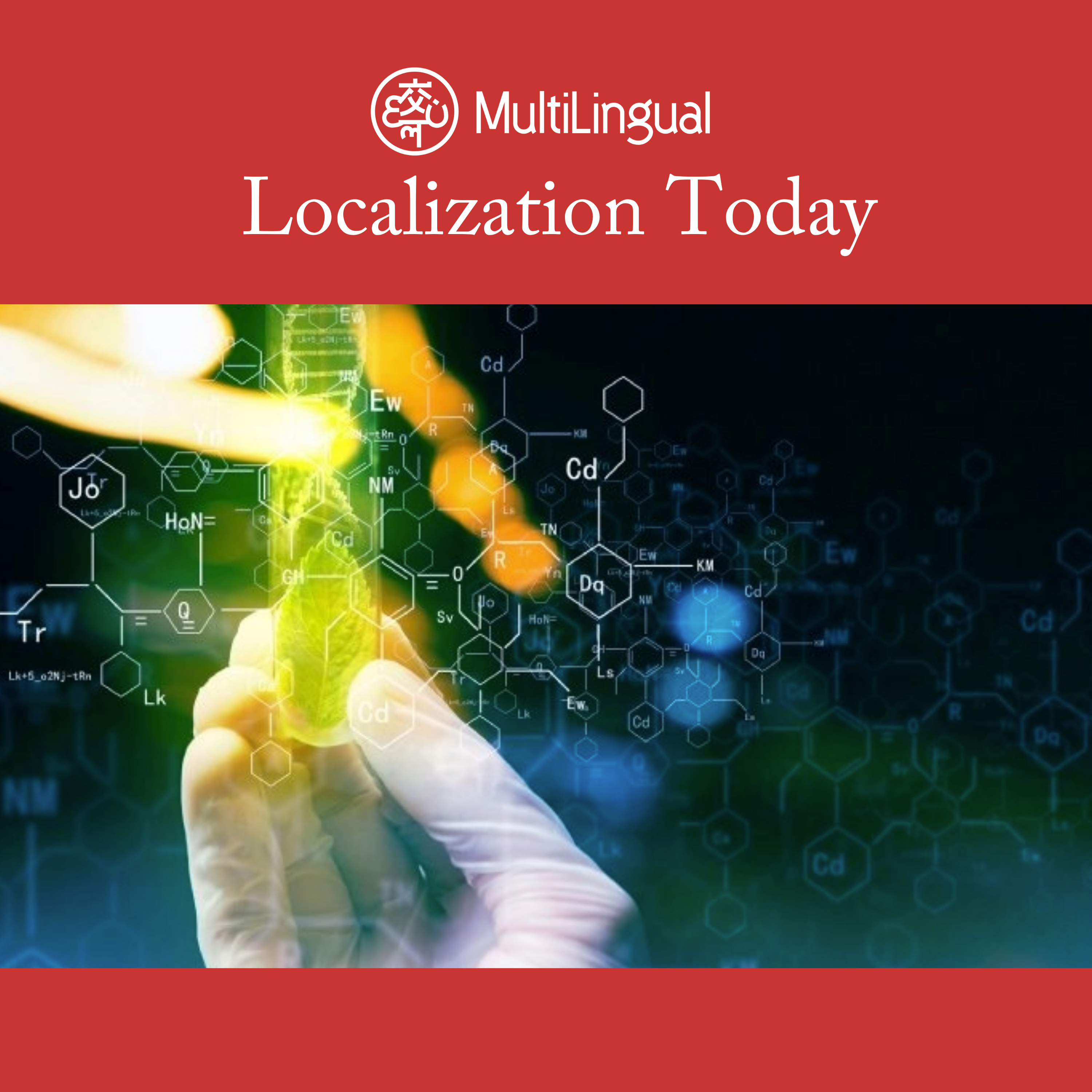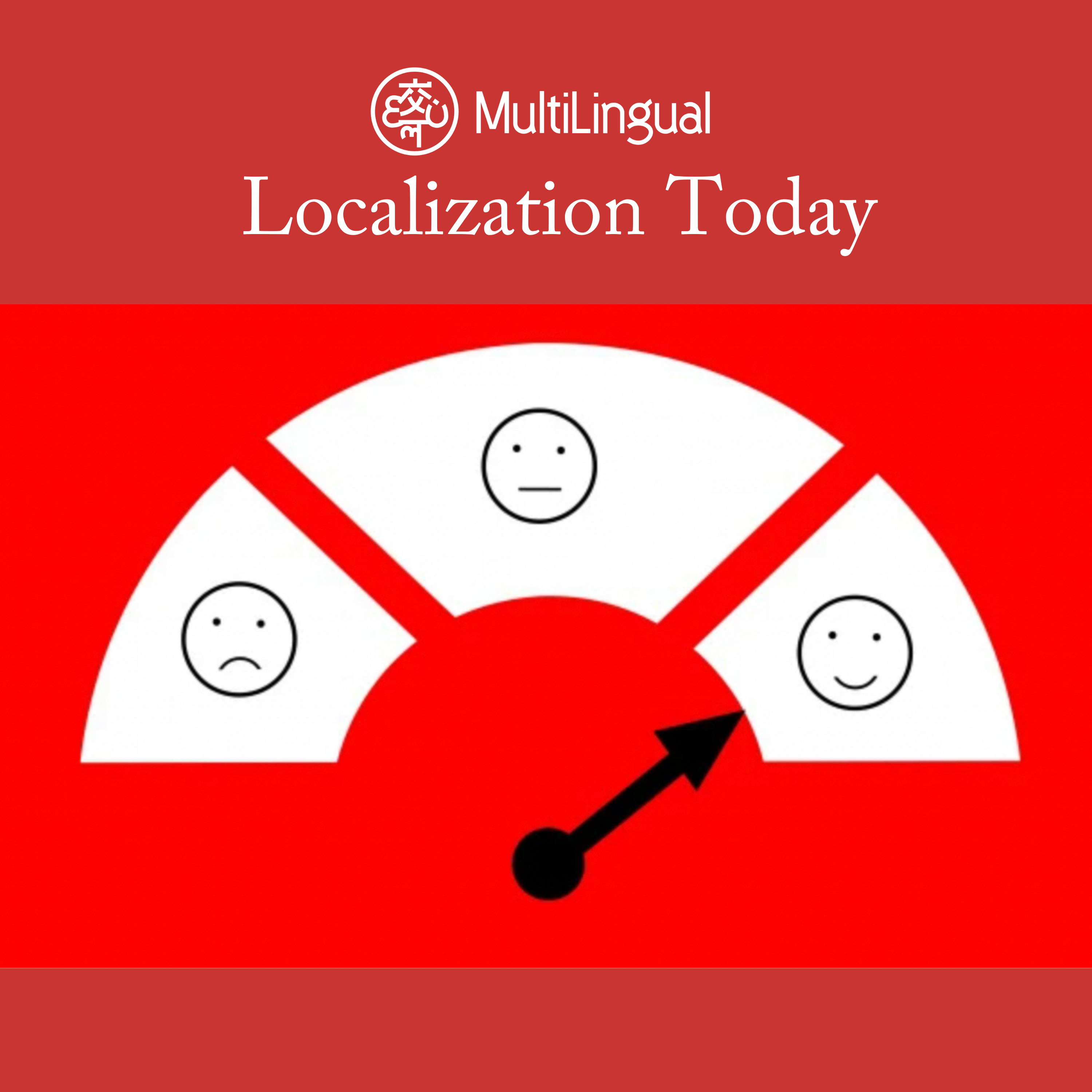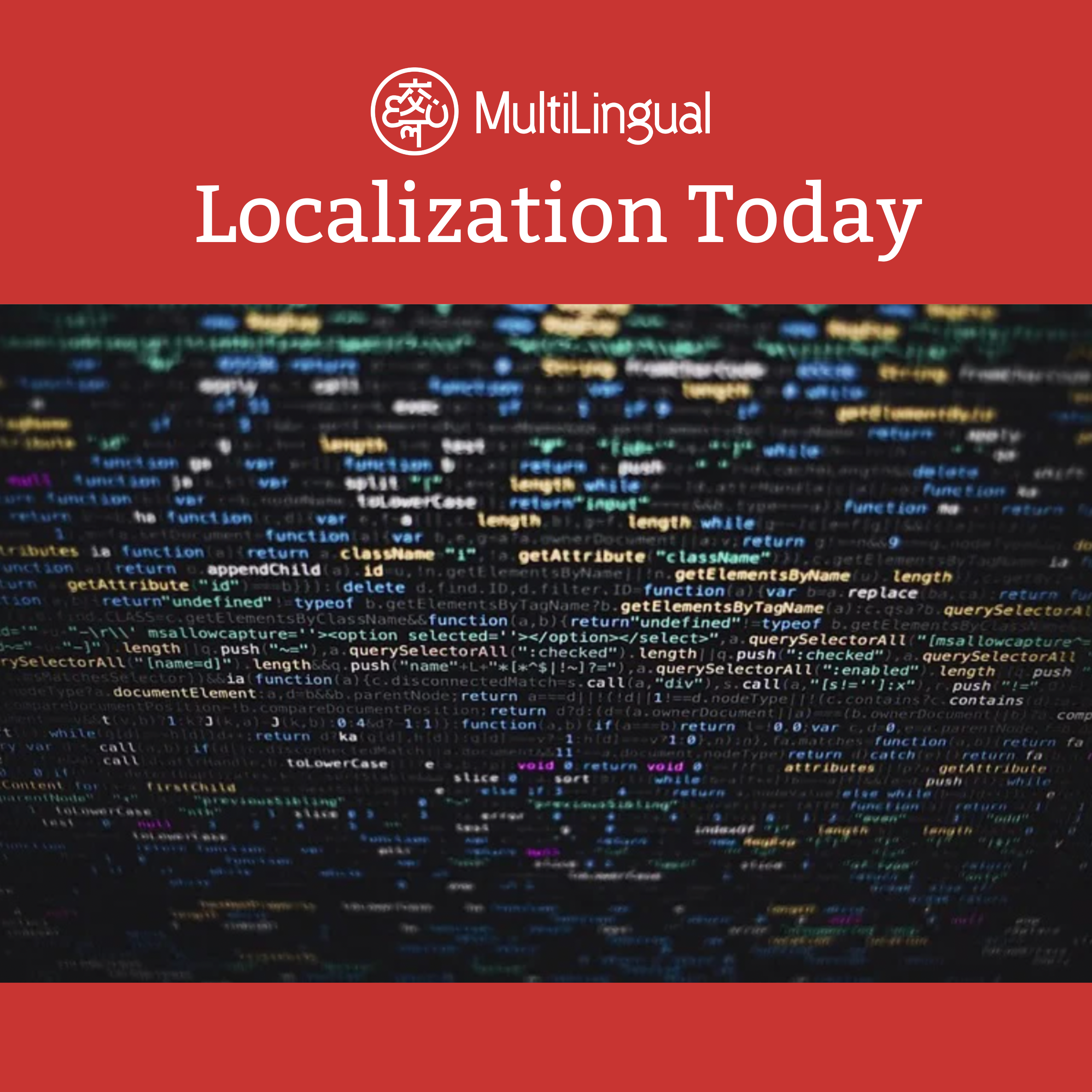Episode Transcript
[00:00:00] Speaker A: A Historical Framework of Language Access Rights in the United States An Interview with Michael Mullah Interview by Dima Jaredat Michael Mullah is the Principal Deputy Director of the Office for Civil Rights, Office of Justice programs at the U.S. department of Justice DOJ, where he works with the director, two deputies, and a team of attorneys and support staff to enforce federal civil rights laws, including language access rights under Title VI of the Civil Rights act of 1964. Title VI in this piece, I speak with Mr. Mullah about the historical framework of language access in the United States, common counterarguments, and the use of automatic translation technologies in language access contexts. Then provide key takeaways from this interview and share some closing thoughts.
Interview with Michael Mullah Tell us about the Office for Civil Rights Office of Justice Programs.
[00:00:55] Speaker B: Our work is very specific. We enforce federal civil rights laws that apply to an entity receiving Federal financial assistance from DOJ under Title vi. Non federal programs and activities receiving Federal funding are prohibited from engaging in acts of national origin discrimination nod, which can include discrimination against a person with limited English proficiency lep, among other things. My office investigates complaints filed by individuals with LEP alleging that a DOJ funded entity failed to provide adequate language services or charge for these services.
[00:01:29] Speaker A: What exactly is language access?
[00:01:32] Speaker B: I define language access as the right to receive language assistance services such as translation and interpreting, and to have meaningful access to services.
Access is meaningful if it is equivalent to the access that others receive, isn't unduly burdened or delayed, and is provided at no cost. When I think of language access, I think of NOD because of Title 6.
That's why for civil rights enforcement purposes, issues related to American Sign Language are not related to national origin under Title VI but instead fall under the Americans with Disabilities Act, ETA or Section 504 of the Rehabilitation Act.
[00:02:10] Speaker A: Tell us more about Title VI of the Civil Rights act of 1964.
[00:02:15] Speaker B: Civil rights laws were passed to end various forms of discrimination. The Civil Rights act of 1957, the first since the Civil Rights act of 1875, created the Civil Rights Division in DOJ but was not as effective in addressing discrimination as the Civil Rights act passed in 1964.
Unlike its predecessor, the Civil Rights act of 1964 includes a range of protections such as Title 6, which prohibits non federal entities that receive Federal financial assistance from engaging in nodes. Sec. 601 of the title 42 USC 2000D reads, no person in the United States shall, on the ground of race, color, or national origin, be excluded from participation in, be denied the benefits of, or be subjected to discrimination under any program or activity receiving federal financial assistance. Subjecting a person with LEP to discrimination due to their language deficiency can constitute a form of nod.
[00:03:15] Speaker A: Could you discuss the history of language access?
[00:03:18] Speaker B: Language access has a long history. Most people trace these historical roots to the 1974 U.S. supreme Court decision in Lao v. Nichols, a case about the lack of language instruction for students with LEP. That case was decided under Title 6. However, the DOJ argued in an October 1973amicus brief that the U.S. supreme Court could also decide the case under the Equal Protection clause of the 14th Amendment of the U.S. constitution, based on two earlier U.S. supreme Court decisions. The 14th Amendment prohibits states from denying equal protection under the law to any person within their jurisdiction. The 14th Amendment was the basis for two similar cases cited in the 1973 DOJ brief. First is the 1925 case Yukong Ang v. Trinidad, which was brought by a monolingual Chinese speaking merchant working in the Philippines, a territory of the United States at the time. In Trinidad, the US Supreme Court ruled that act no.2972, a law in the Philippines that prohibited keeping business records in a language other than English, Spanish, or a Filipino dialect, was in violation of the Equal Protection Clause.
That is, the US Supreme Court found that discrimination based on language proficiency was grounds for violating the Equal Protection Clause even if the government did not cause the person's language deficiency. The Equal Protection Clause was also used in the 1923 decision Meyer v. State of Nebraska, in which the U.S. supreme Court overturned the conviction of an instructor who taught German to a 10 year old student. In 1919, Nebraska enacted a state law known as the Simon act, which made it a crime for any person to teach any subject in a language other than English or to teach foreign languages to students who had not yet passed the eighth grade. The US Supreme Court held that the protection of the Constitution extends to all to those who speak other languages as well as to those born with English on the tongue. Perhaps it would be highly advantageous if all had ready understanding of our ordinary speech, but a desirable end cannot be promoted by prohibited means. These US Supreme Court decisions show that justice for people with LEP has been historically insured under the U.S. constitution, making Title 6 one of several ways to guarantee language access.
[00:05:41] Speaker A: What are your thoughts on the following popular language access counterarguments? First off, some people with LEP might be undocumented.
[00:05:49] Speaker B: The language of Title 6 is clear. No person in the United States shall, on the ground of race, color, or national origin, be excluded from participation in be denied the benefits of or be subjected to discrimination under any program or activity receiving federal financial assistance. The law does not say no lawful permanent resident or no US Citizen making it applicable to all people in the US Regardless of their immigration status. For example, The DOJ Title 6 legal manual explains that the word person includes citizens and noncitizens alike and that undocumented individuals in the United States are protected from discrimination on the basis of race, color, and national origin. Lauvi Nichols is proof that the status of the person has no bearing on Title 6 protections. In its decision, the U.S. supreme Court did not address the immigration status of the students even if it was a possibility that some of them were undocumented.
[00:06:47] Speaker A: Some argue that there aren't enough people in those language communities.
[00:06:51] Speaker B: Alleging discrimination does not require demonstrating that a large group of people from a specific race or national origin or who speak a specific language reside in the community. Again, for Title 6 protection against Nod, you only need to be a person with LEP in the United States receiving services from a federally assisted program or activity. A single person can file a Title 6 lawsuit or an administrative complaint with a federal agency alleging nod. For example, in Reyes v. Clark, a 2018 federal lawsuit, Nicolas Reyes, a monolingual speaker of Spanish, was held in solitary confinement for 12 years at a Virginia state prison. He filed a lawsuit because he alleged the Step Down Program, the only program to reduce his sentence, was available only in English, a language he did not speak. The case was settled in 2021. The Title 6 lawsuit was brought by just one person. What mattered was that Reyes was a person with LEP in the United States who alleged NOD by a program or activity receiving federal fund services.
[00:07:56] Speaker A: Finally, there are more pressing issues worthy of our already limited resources.
[00:08:01] Speaker B: Language access is important because it is a vital part of many people's lives and is integrated into other federal laws. For example, Section 203 of the Voting Rights act, amended in 1975, requires voting materials to be provided in English and the languages spoken by a community of LEP voters.
Likewise, Section 1703 of the Equal Educational Opportunities act of 1974 requires schools to take appropriate, appropriate actions to overcome language barriers that hinder students with LEP from meaningfully participating in their educational programs. Similarly, section 1557 of the Affordable Care act protects patients with LEP from nod, such as on the grounds of their English language proficiency. Language access is essential in various sectors of life and is a key civil right.
[00:08:50] Speaker A: What is the government's stance on translation technology?
[00:08:53] Speaker B: Currently, there are no official DOJ positions on the use of machine translation MT engines in language access contexts, however, there seems to be a somewhat consistent attitude toward the use of MT. For example, a 2021 DOJ document explains, if the entity utilizes machine translation software, the entity should have a human translator proofread all content containing vital information before posting it to ensure the accuracy of the translated information. Similarly, a blog post from the General Services Administration advises that agencies should not rely solely on automatic machine translation services or computer aided technology.
All translations should be checked by a competent human translator. This is a matter of trust, and the quality of language services speaks to a service provider's credibility and the extent to which they care about the community they serve. MT engines can generate inaccuracies and significant errors, leading speakers and readers of languages other than English to feel as though they are not being cared for. Federally assisted entities must remember that meaningful access to services and content is a right that may be protected under Title 6.
[00:10:05] Speaker A: Interviewers takeaways for a long time, language access has been framed as a top down policy domain, with the major legislative milestones of Title VI of the Civil Rights act of 1964 and Executive Order 13,000 shaping its landscape. However, the conversation with moles shed light on an alternative perspective. Language access could have bottom up origins.
As discussed. US Supreme Court cases such as Meyer v. Nebraska, 1923 and Yukon Envy Trinidad, 1925 demonstrate that early language rights advocacy often stemmed from individual stakeholders. A teacher in the 1923 case and a merchant in the 1925 case. Local stakeholders were the ones to challenge restrictive policies long before an explicit federal mandate on language access existed. This suggests that modern language access policies have evolved not only from government directives but also from the persistent efforts of individuals and communities advocating for their linguistic rights.
Recognizing this is empowering. It underscores that meaningful change does not solely depend on institutional decisions. It begins with us. For translators, embracing this responsibility means more than just mastering language pairs. It requires expanding skill sets and integrating consultancy into our work. As professionals navigating both policy and practice, translators are uniquely positioned to shape the future of language access.
Moving forward, fostering multi stakeholder dialogues will be critical. Language access, like translation, is an inherently interdisciplinary field, requiring collaboration among policymakers, linguists, technologists, and community advocates. These discussions should not only involve translators but be initiated by them.
To do so effectively, translators must be well versed in the history, present realities, and legal frameworks of language access, enabling them to anticipate challenges, propose solutions, and advocate for sustainable policies. Although language access is a civil right, some may still perceive it as a costly endeavor I invite you to borrow analytical tools from economics, such as cost benefit analysis and return on investment.
For example, when making the case for using MT in artificial intelligence AI systems in lieu of human translators, it is crucial to assess the benefits, the costs, which in this case could be someone's civil right, and the trade offs associated with such a decision. MT and language technologies undeniably save cost, time, and effort. However, they are not without their limitations. As Mr. Moulay discussed, human translators remain indispensable in language access no matter how advanced MT becomes.
Yet human translators also have limitations. Unlike MT engines, they cannot translate thousands of words in seconds. The reality calls for a balanced approach. Rather than viewing MT as a replacement for human translators, linguists should seek ways to integrate language technologies to complement their expertise.
The amalgam of efficiency and accuracy achieved through a symbiotic relationship between human translators and the emerging technology can help ensure quality and further accessibility.
Mr. Meule noted that ensuring the accuracy of translations is fundamentally a matter of trust. I believe that this notion extends beyond compliance with language access policies and directly impacts how communities perceive the institutions meant to serve them. The theme of trust is a recurring concept in translation studies, particularly in discussions of translator ethics, fidelity, and responsibility.
Translation scholar Christiane Nod highlights this in her work Loyalty and Fidelity in Specialized Translation, 2006, in which she argues that confidence will strengthen the translator's social prestige as a responsible and trustworthy partner. What currently sets us apart from mtengins is that the latter cannot build trust, which is why we will remain indispensable. For that to happen, we should embrace our roles not just as language mediators but also as consultants and trust builders. Language access is not an expense but a worthwhile investment in equity, inclusion, and societal well being. The question should not be whether we invest in language access, but how we do so in a way that maximizes social impact, promotes economic sustainability for all involved stakeholders, and upholds access as a fundamental civil right for LA people in the United States. This article was written by Dima Jaradat, a PhD in translation student at Kent State University whose research interests include language access and policy. Originally published in Multilingual Magazine, Issue 238, March 2025.


